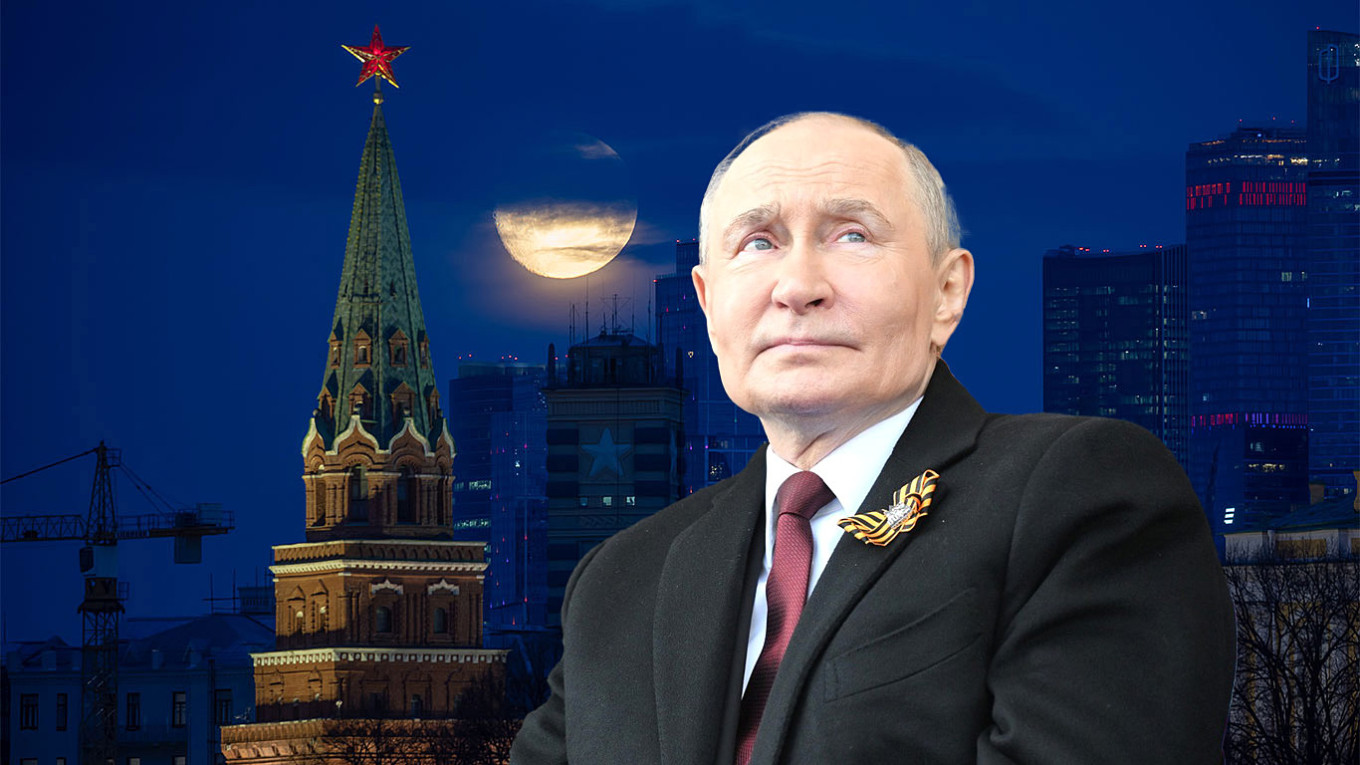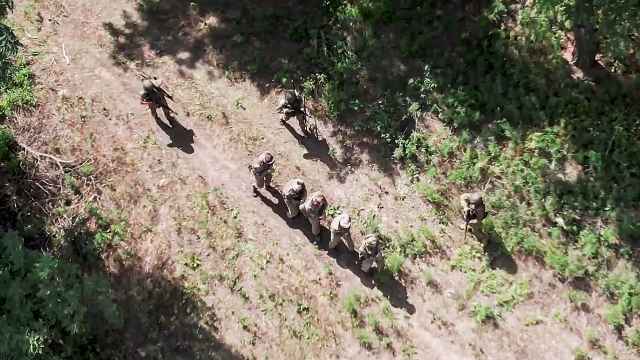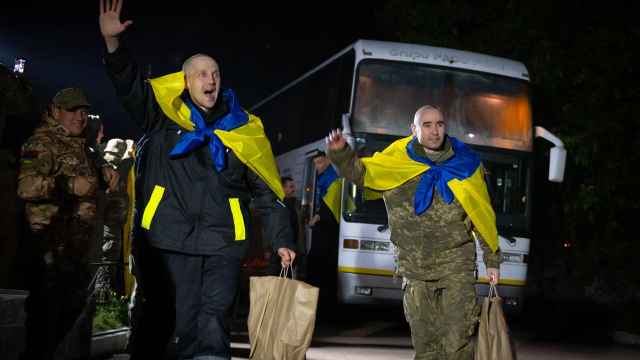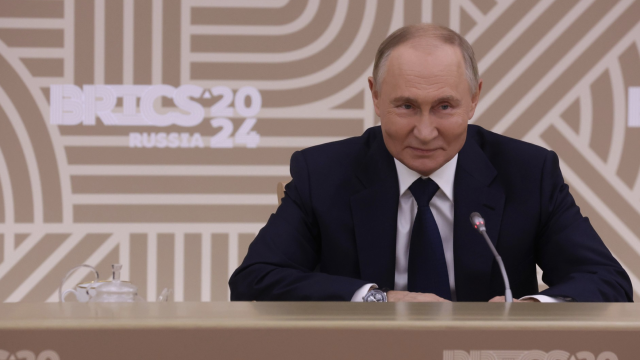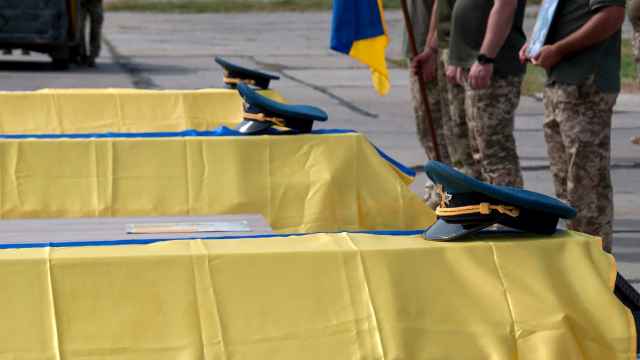As early as Monday, U.S. President Donald Trump and Russian President Vladimir Putin held a direct phone call to discuss prospects for ending Russia’s unprovoked war against Ukraine. Trump said that Russia and Ukraine had agreed to begin negotiations toward a ceasefire and that there is “tremendous opportunity” for the country to trade with the U.S.
However, not everyone is so eager to welcome Russia back into the international community.
On the same day that Russia marked Victory Day with military parades on May 9, European foreign ministers convened in Lviv to approve the establishment of a Special Tribunal for the crime of aggression against Ukraine.
Five days later, the decision-making body of the Council of Europe took formal steps to advance the tribunal's creation. Following a formal request from President Volodymyr Zelensky, the council’s Secretary General Alain Berset was tasked with leading the process. This marks a significant development in international efforts to hold Russia accountable for its actions in Ukraine.
The tribunal will not replace the International Criminal Court, which already issued an arrest warrant for Putin for the deportation of Ukrainian children. Instead, it aims to fill a gap that the ICC cannot fill because its current legal infrastructure is insufficient for prosecuting sitting heads of state for violating the UN Charter with the crime of aggression.
While much of the discussion around the tribunal has focused on accountability, deterrence and an attempt to restore respect for international law, its implications for Russia may prove to be just as important.
Prosecuting the Russian leadership is not simply about punishment. It may offer the country a chance to break from a cycle of impunity that has shaped its modern history. Without addressing the political culture that enables wars of conquest, repression and myth-making, Russia is likely to reproduce the same patterns, with new victims at home and abroad.
The human rights organization Memorial — now banned in Russia but still active abroad — has already acknowledged one of its own historical blind spots: not calling for perpetrators of Soviet-era atrocities to be held accountable after 1991 for their crimes. That omission, Memorial argued, helped allow for the return of authoritarianism and state violence in the post-Soviet era.
The current regime builds its legitimacy on narratives of historical grandeur and grievance, particularly around the Soviet victory in World War II. By rehabilitating Stalinism and framing modern conflicts in terms of “anti-Nazism,” the Kremlin weaponized history and the memory of Nazi aggression to cloak its actions with the justification of defending Russian civilisation.
A tribunal would not only document crimes but also shape public discourse inside Russia and beyond. The Nuremberg Trials did not eliminate fascism in Germany. But they helped discredit it. A tribunal for the crime of aggression could initiate similar debates in Russia around the costs of empire, the role of political leaders and the meaning of national responsibility.
This is particularly vital when there are few avenues left for open discussion within Russia. Independent media is suppressed, dissent is criminalized and civil society is fractured. But memory, as Russian history shows, has a long half-life. A tribunal may not produce change overnight. But it could plant the seeds for longer-term re-evaluation.
For Russia’s future, examining its past matters. A society that never discusses how wars begin or are allowed to continue is a society doomed to repeat a cycle of violence. Bringing senior officials to justice for launching the war in Ukraine may serve not just as a warning to future aggressors, but as a protective mechanism for Russia itself. It would help dismantle the idea that greatness is measured in destruction, oppression, and reassert the principle that power must answer to law.
Leaving Russia’s leadership unpunished would confirm the precedent that aggressive wars can be waged without consequence, while a strong leader is above the law. It would embolden not only Moscow but also other revisionist states that notice the international community’s impotence to punish blatant violations of sovereignty and human rights.
If the Trump-Putin phone call leads to a future personal meeting, it may mark a shift in the diplomatic landscape. But without a parallel path to justice, peace, if it comes, will rest on fragile ground.
The tribunal may not only contribute to saving Ukraine. It may help save Russia, too.
A Message from The Moscow Times:
Dear readers,
We are facing unprecedented challenges. Russia's Prosecutor General's Office has designated The Moscow Times as an "undesirable" organization, criminalizing our work and putting our staff at risk of prosecution. This follows our earlier unjust labeling as a "foreign agent."
These actions are direct attempts to silence independent journalism in Russia. The authorities claim our work "discredits the decisions of the Russian leadership." We see things differently: we strive to provide accurate, unbiased reporting on Russia.
We, the journalists of The Moscow Times, refuse to be silenced. But to continue our work, we need your help.
Your support, no matter how small, makes a world of difference. If you can, please support us monthly starting from just $2. It's quick to set up, and every contribution makes a significant impact.
By supporting The Moscow Times, you're defending open, independent journalism in the face of repression. Thank you for standing with us.
Remind me later.



